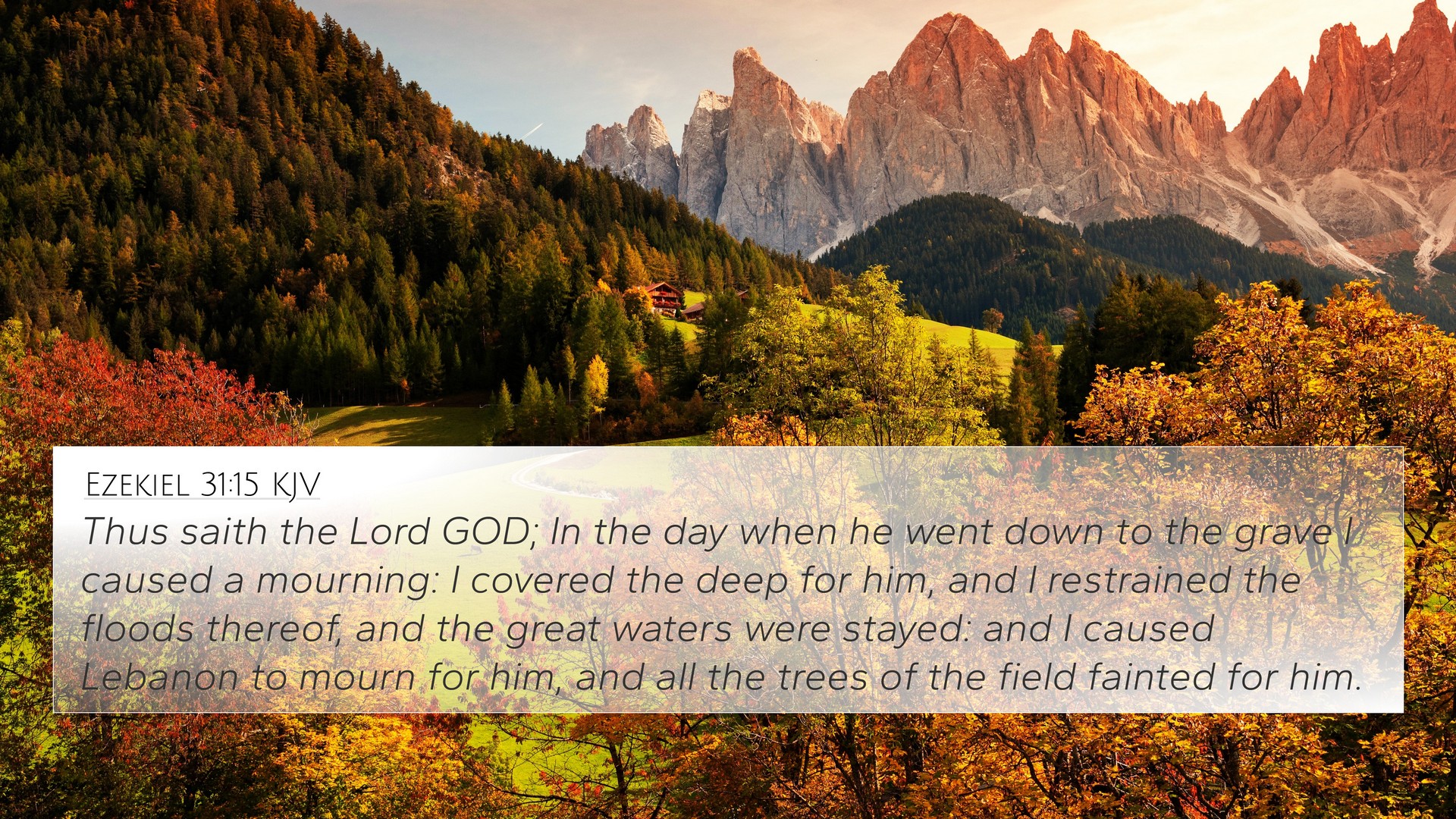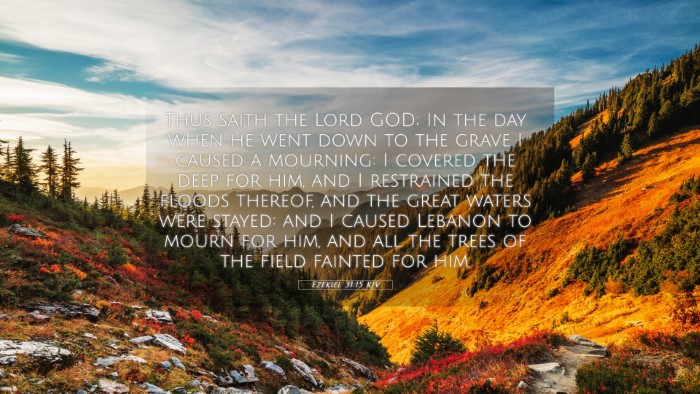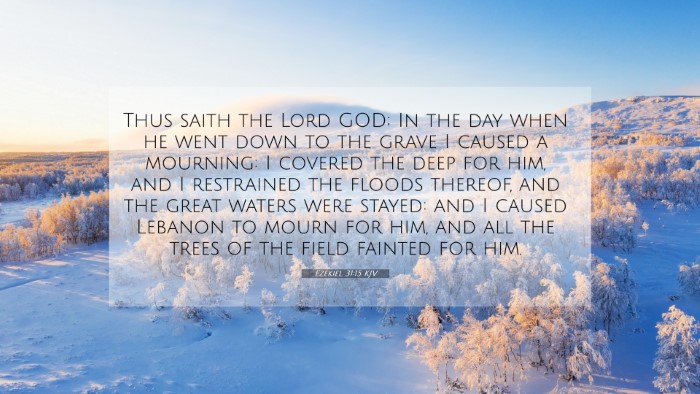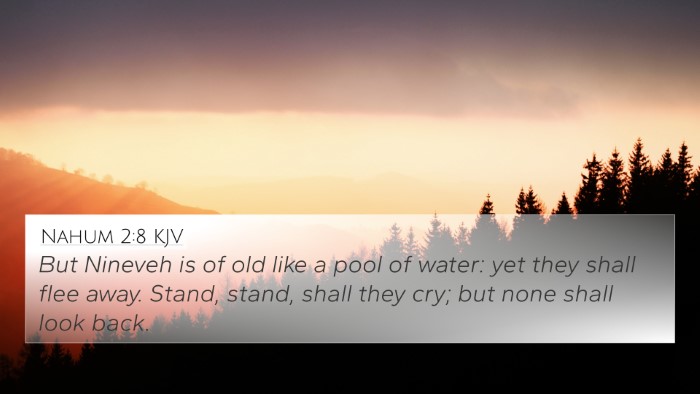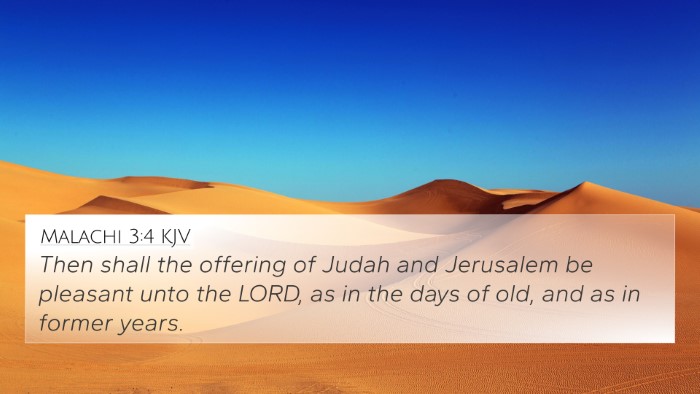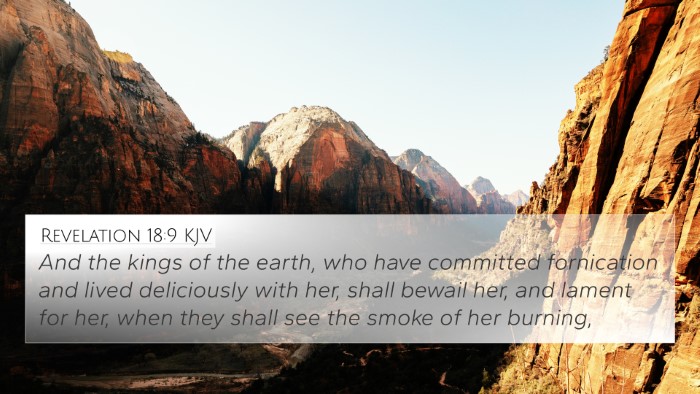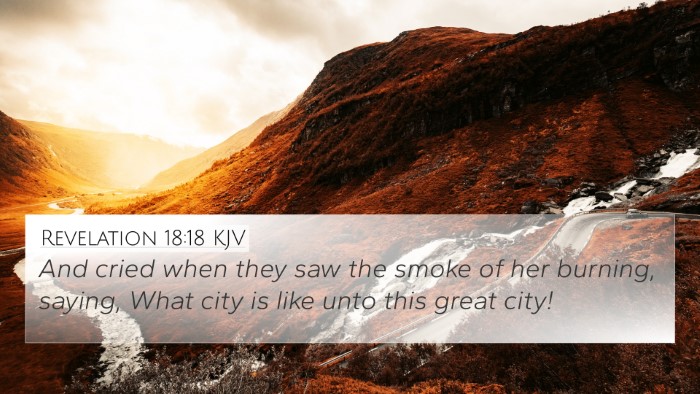Ezekiel 31:15 - Understanding the Verse
Ezekiel 31:15 states: "Thus saith the Lord GOD; In the day when he went down to the grave I caused a mourning: I covered the deep for him, and I restrained the floods thereof, and the great waters were stayed: and I caused Lebanon to mourn for him, and all the trees of the field fainted for him."
Context and Overview
This verse is part of a prophetic message delivered by Ezekiel concerning the downfall of Egypt, symbolized as a mighty cedar in the previous verses. The imagery reflects both the grandeur and the ultimately tragic fate of nations that refuse to acknowledge God's sovereignty.
Commentary Insights
Insights from prominent public domain commentaries enhance our understanding of this verse:
-
Matthew Henry's Commentary:
Henry notes that this verse exemplifies God's judgment and the sorrow that follows the fall of great nations. The mourning mentioned symbolizes the deep impact of loss, not just on the nation itself but also on its former allies and the surrounding environment.
-
Albert Barnes' Commentary:
Barnes emphasizes the personification of nature mourning for Egypt. He suggests that the imagery of Lebanon's trees and the restrained floods signifies the disruption of the natural order due to human pride and rebellion against God.
-
Adam Clarke's Commentary:
Clarke elaborates on the significance of the "grave" as a metaphor for destruction and the definitive end of a strong power. He posits that this portrayal serves as a warning to others about the consequences of hubris.
Thematic Connections
This verse illustrates several broader thematic connections within the Bible, particularly regarding how nations are treated based on their faithfulness to God. The motifs of judgment, mourning, and nature lamenting human decisions are recurrent throughout scripture.
Cross-References
Here are some Bible verses that relate to Ezekiel 31:15:
- Ezekiel 32:18-19: A further pronouncement on the fate of Egypt.
- Isaiah 14:8: The trees rejoicing over the fall of a powerful enemy.
- Jeremiah 47:2: The reference to the floods of judgment and destruction.
- Revelation 18:9-10: The mourning of nations over the fall of Babylon, drawing parallels to Egypt.
- Psalm 37:35-36: The fate of the wicked and the assurance of God’s judgment.
- Daniel 4:30: King Nebuchadnezzar's fall due to pride, another example of God's judgment.
- Proverbs 16:18: Pride precedes a fall, a principle evident throughout biblical history.
Inter-Biblical Dialogue
This verse serves as part of a larger inter-Biblical dialogue, illustrating the continuity of themes related to divine judgment and the frailty of human greatness. The connections between the Old Testament narratives and New Testament teachings echo the same principles of exaltation and humbling in God's economy.
Additional Insights on Cross-Referencing
Understanding the connections between biblical texts can greatly enhance our study of scripture. Here are some tools and methods to consider:
- Bible Concordance: A helpful resource for locating verses related by specific words or themes.
- Bible Cross-Reference Guide: Useful for identifying links between scriptures.
- Cross-Reference Bible Study: Engaging in comparative studies to see how verses build upon or contrast with each other.
- Comprehensive Bible Cross-Reference Materials: Utilizing various tools available for a deeper study.
Conclusion
In conclusion, Ezekiel 31:15 serves as a profound reminder of the consequences of pride and the ultimate sovereignty of God over nations. Through cross-referencing and thematic analysis, we can glean insights that apply not only to the context of ancient Israel but also to our contemporary understanding of faith and humility in the face of divine authority.
